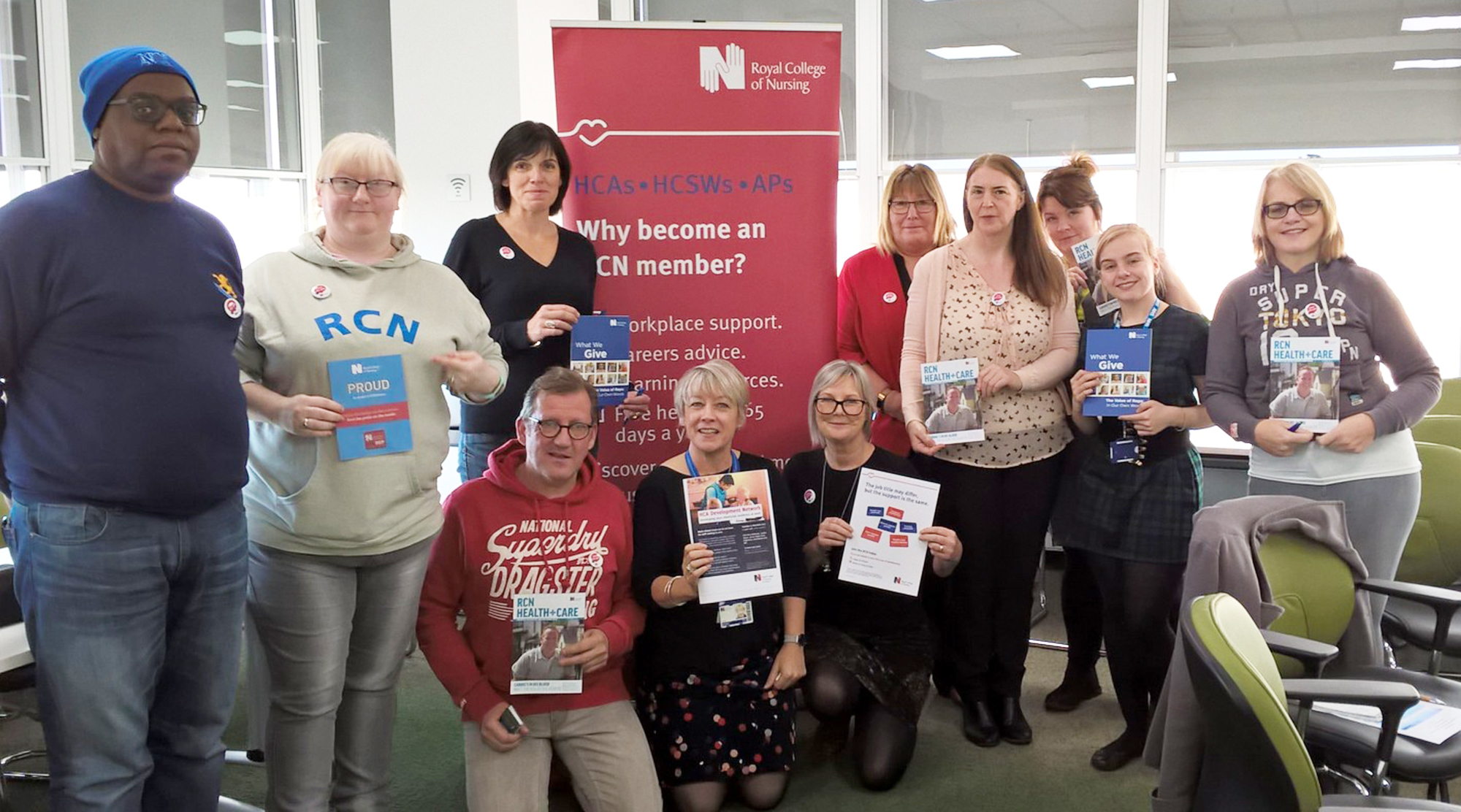After 25 years in post, Jean Dipple, an HCA in a busy respite care unit at Birmingham Community Health Care Foundation Trust, faced redundancy. A restructure taking place within the trust meant she had to fight for her job. First she got angry, and then she had what she calls her “lightbulb moment”.
“I realised that if you don’t get involved with change, you become powerless, and it becomes something that’s done to you,” she says.
After being reappointed, Jean decided it was time to do more to promote the voice of HCAs and recognise their vital role in her workplace.
“We’re the backbone of the NHS. We’re often the largest staff group and the direct care we provide places us in a unique and privileged position to support and lead change,” she says.
Jean was set to break through the glass ceiling facing many HCAs who want to lead the way.
A constant reminder
She decided to stand for election to represent HCAs as a staff governor on the council of governors at her trust. It’s not something for the faint hearted. As a group they hold the directors to account and represent the interests of the members of the trust and the interests of the public.
“Just being at the meetings makes a difference – even if I’m not involved in the conversation. They now always ask – how will decisions affect HCAs? I’m a constant reminder and I’m never afraid to ask what the trust is doing,” she adds.
The trust is progressive, having two HCA staff governors, and Jean has no concerns about speaking out. “It could be daunting – there’s some terminology I don’t understand,” she says. “But I ask, ‘What do you mean?’ because we should be talking in a way that everyone understands.”
If you don’t get involved with change, you become powerless, and it becomes something that’s done to you
Jean’s not stopping there. She’s a trust change champion, a role that will support staff and the organisation through a planned merger of three trusts. She’s also completed the Edward Jenner leadership programme run by NHS Leadership and says this has already helped her improve the patient care she delivers.
“Every interaction with a patient involves leadership but shouldn’t be confused with power or a ‘nurse is always right’ attitude,” she says.
“Understanding how best to interact with patients can help you support them to deal with the distressing situations they may be facing.”
Being the best
Jean’s actions have helped her develop new skills to support others. “I want to encourage staff to get involved and hold a mirror up to their own practice, becoming the best they can be,” she says.
Gill Coverdale, RCN Professional Lead for Education, agrees. “Leadership is seen across all levels and settings in health care,” she says. “Jean is an excellent example of how HCAs can contribute to the enhancement of patient care through good leadership, knowledge and skills.”
Getting involved
Jean’s involved with her organisation’s HCA forum and the RCN West Midlands regional network for HCAs.
“These groups are a great way for us to connect,” she says. “We have many titles and roles but together we can unite and proudly say we’re leading change.”

Contact your local Health Practitioner Committee member for more information about RCN networks.
Find out more
The RCN’s Introduction to Leadership Programme supports HCAs to become compassionate, competent and confident leaders in frontline care. The programme develops leadership skills using a combination of training days and individual coaching sessions.








